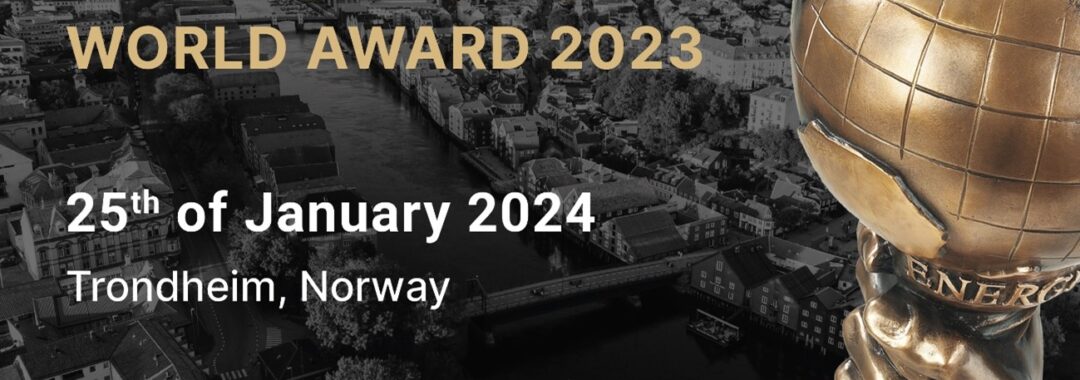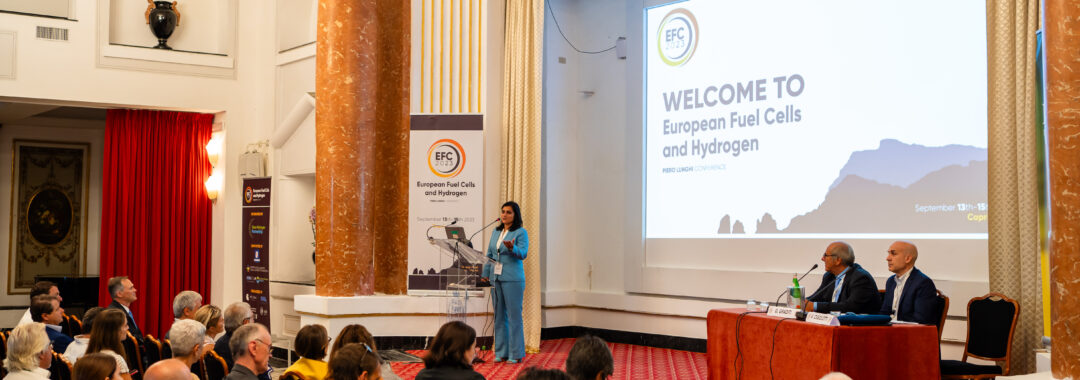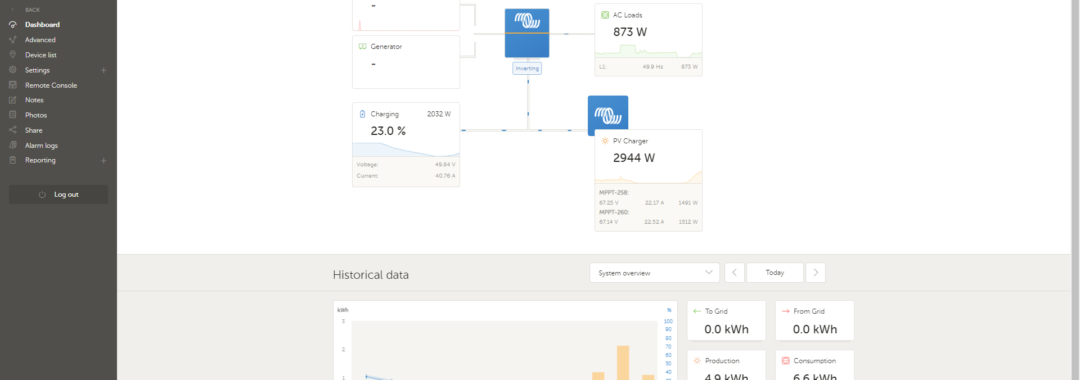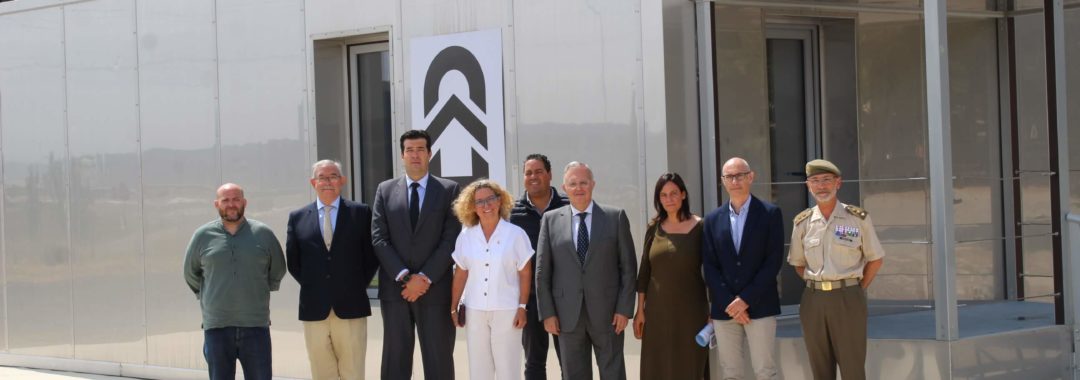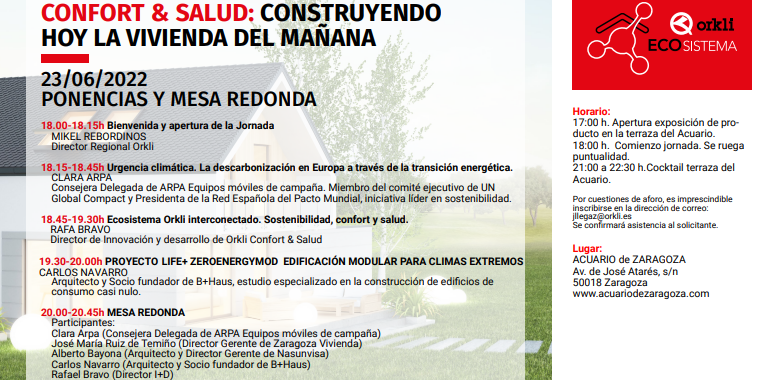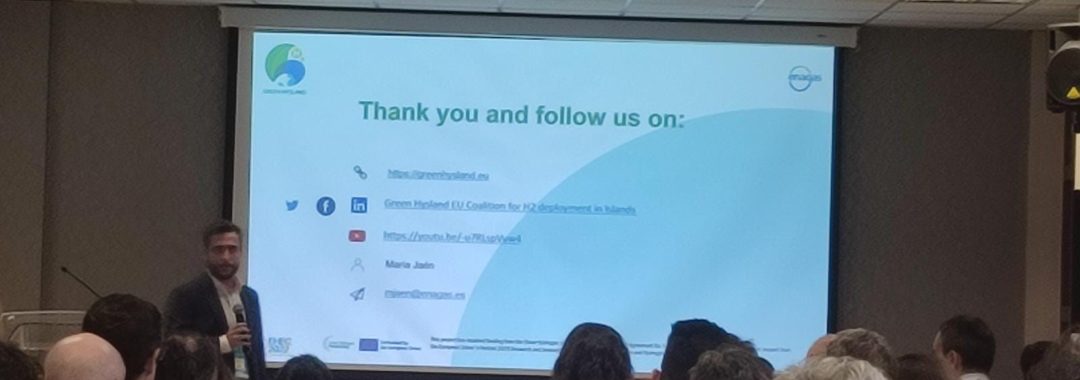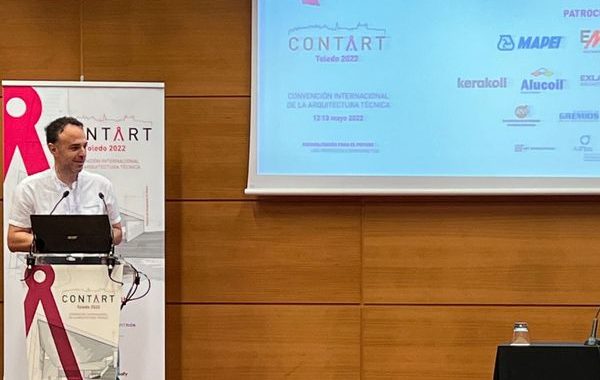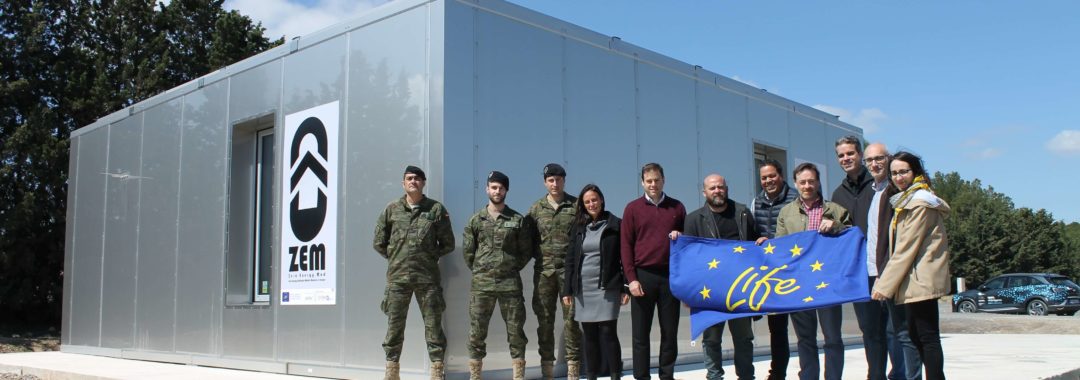The project was nominated for the Energy Globe Award in the Air category, a recognition that underscores its importance in promoting sustainable practices. We attended the awards ceremony, where the Project Manager of the initiative, Paula Barberó from the Fundación Hidrógeno Aragón, represented our efforts. Although we did not win the award, the nomination itself provided invaluable visibility for the project, highlighting its relevance on an international stage.
Category Archives: News
Our project on the Energy Globe World Award nominee
Our project is nominated for the Energy Globe World Award. The ENERGY GLOBE Award is an environmental prize awarded annually in more than 180 countries by the Austrian-based non-profit foundation ENERGY GLOBE.
The award recognises projects that focus on energy efficiency, sustainability and the use of renewable energies. The aim is to highlight solutions to environmental problems.
The prize is awarded in the categories of: Earth, Fire, Water, Air and Youth. In the case of Life Zero Energy Mod, the project is in the “Air” category, which focuses on reducing emissions and improving air quality, the awards website explains.
The awards ceremony will take place on 25 January 2024 in Trondheim, Norway. The event will start with the conference “Net Zero Energy and Prosperity”. In addition, as a nominated project, you will have the opportunity to present to more than 150 guests from the 25 nominated projects in the different categories.
Progress shown in EFC 2023
Progress shown in EFC 2023.
The 10th edition of the “Piero Lunghi European Conference on Fuel Cells and Hydrogen” was held on the beautiful island of Capri from 13 to 15 September.
It was organised by ATENA (High Technology District in the field of Energy and Environment), ENEA (the Italian National Agency for New Technologies, Energy and Sustainable Economic Development), the University “Parthenope” of Naples and the University of Perugia.
During the event, Carlos Arié, Innovation Technician at Aragon Hydrogen Foundation, presented the Life Zero Energy Mod project, with the intention of showing the general characteristics and progress of the project.
The presentation of the project took place during the session “Integrated hydrogen systems”, where he highlighted Hydrogen: a storage solution of renewable energy for habitable mobile modules, through the Life Zero Energy Mod project.
EFC 2023 welcomed more than 300 participants from all over the world and has established itself as the main Italian event on hydrogen and fuel cells, attracting selected and valuable visitors from all over the world and especially from the most active countries in this field.
The event has delved into pioneering research and explored innovative solutions through diverse perspectives and expertise in the world of H2.
It has been an enjoyable and interesting journey through the world of H2&FC, through stimulating debates, valuable insights and forging new connections within our professional community.
Life Zero Energy Mod module works through photovoltaic panels
Life Zero Energy Mod module works through photovoltaic panels.
Currently we are at the Life Zero Energy Mod performing load testing of batteries and other equipment.
We are taking the opportunity to review the data we are monitoring and perform the first analyses.
Since last Friday, July 22nd, the Life Zero Energy Mod module is working in autonomous mode, covering the energy consumption thanks to the energy generated by the photovoltaic panels and stored in the batteries. Thus, the module was disconnected from the power grid and the demo in Zaragoza is operational.
The main objective of this project is to develop a robust, transportable and easy to install habitable module based on the Passivhaus standard, linked to renewable energy resources (photovoltaic and wind) and a hybrid storage system that combines the use of batteries with a seasonal solution based on hydrogen technology. This avoids the consumption of diesel, which is often used as an energy supply in isolated environments, and its associated emissions.
In addition, the modules require 90% less energy than existing modules and are self-sufficient, as the little energy they need to operate is generated and stored in the form of hydrogen.
Habitable, emission free and self-sufficient mobile modules
LIFE ZERO ENERGY MOD develops the first habitable, emission-free and self-sufficient mobile modules thanks to renewable energies and hydrogen technology.
The San Jorge Army Base in Zaragoza has hosted a presentation of this initiative coordinated by the Hydrogen Aragon Foundation and funded by the European project LIFE + in which also participate the Defense University Center and the companies ARPA EMC and B-Haus.
LIFE ZEROENERGYMOD is a demonstrative innovation project that aims to achieve habitable mobile modules with almost zero energy demand that can also be satisfied with renewable resources, without generating emissions.
The main objective of this project is to develop a robust, transportable and easy to install habitable module based on the Passivhaus standard, linked to renewable energy resources (photovoltaic and wind) and a hybrid storage system that combines the use of batteries with a seasonal solution based on hydrogen technology. This avoids the consumption of diesel, which is often used as an energy supply in isolated environments, and its associated emissions. In addition, the modules require 90% less energy than existing modules and are self-sufficient, as the little energy they need to operate is generated and stored in the form of hydrogen.
During the first year of the project, which was launched at the end of 2020, the consortium has focused on creating a baseline assessment of materials and construction techniques to develop a module that meets the required technical and mobility requirements. In the second year, a prototype was built at the facilities of the company ARPA Equipos Móviles de Campaña, which was subsequently disassembled, moved and reassembled at the Army’s San Jorge Base in Zaragoza, in what is the first demonstration of the project.
Life Zero Energy Mod in two ways
Initially, two types of independent modules were proposed: PASSIVMOD (habitable module) and ENERMOD (renewable energy generation and storage module). During the design process, the initial configuration has evolved into a more compact one, where the ENERMOD is integrated into the construction solution of the living modules based on Passivhaus standards. This innovation increases the surface area and improves the livability and comfort of the modules, increasing the efficiency and performance of the energy module.
The second half of the project will focus on the demonstration and monitoring of the constructed prototype. For this, there were initially two demonstration sites at military bases: first in Zaragoza, Spain and then in Riga, Latvia. In 2021, a third demonstration site was included at the Spanish base Gabriel de Castilla in Antarctica, to validate the suitability of the prototype in one of the most extreme environments known.
In 2022, following Russia’s invasion of Ukraine, the area near the second demonstration site has become very unstable and presents risks that could seriously compromise the viability of the project. In view of this circumstance, the consortium proposed to extend the demonstration in Spain and avoid moving the prototype to Latvia. In addition, these tests will be complemented with the development of a digital twin of the array that will be validated by real data collected both in our country and in Antarctica.
The ZEROENERGYMOD project is coordinated by the Foundation for the Development of New Hydrogen Technologies in Aragon and also involves the University Center of Defense and the Aragonese companies ARPA EMC and B-Haus. It has a budget of more than one million euros, 55% of which is financed by the European LIFE+ project.
Life Zero Energy Mod at sustainable building conference
Life Zero Energy Mod, a project coordinated by the Hydrogen Foundation in Aragon, together with ARPA, will participate in the sustainable building conference Comfort & Health: building tomorrow’s housing today.
The conference will be held on June 23, 2022 at the Aquarium of Zaragoza.
The event is organized by ORKLI, pioneers in Gas Safety, at the forefront in sectors such as heating and number one in innovative solutions for heaters and solar.
At the event, ORKLI will present the interconnected Orkli Ecosystem. Sustainability, comfort and health.
Life Zero Energy Mod
In this opportunity, our partners, Carlos Navarro, architect and founding partner of B+Haus and Clara Arpa, CEO of ARPA: Mobile Field Equipment, will be present to make a presentation explaining our Life+ Zero Energy Mod Project: Modular Building For Extreme Climates.
The partners of B-Haus, a company specialized in PassivHaus construction, and ARPA EMC, which has extensive experience in installation, maintenance and design of military and emergency mobile field equipment, are instrumental in the development of the project.
The Life Zero Energy Mod project focuses on the design, sizing and development of the energy module, with a strategic role in the development of the seasonal hydrogen storage of the energy module.
Life Zero Energy Mod at EHEC
Life Zero Energy Mod was presented at EHEC 2022.
The European Hydrogen Energy Conference (EHEC) is the European reference conference in the field of hydrogen energy.
The EHEC took place from May 18 to 20, 2022 in Madrid. EHEC is identified in the Spanish Hydrogen Roadmap 2020 as one of the measures to position Spain as a reference for these technologies in Europe.
During the event, our colleague Carlos Arié, Innovation Technician of the Aragon Hydrogen Foundation, presented the objectives of the project, as well as its main challenges.
Self-sufficient living module at CONTART2022
Self-sufficient living module at CONTART2022. With Life Zero Energy Mod was presented the commitment to transportable modules that incorporate renewable energy sources.
The exhibition took place at the IX International Convention of Technical Architecture in Toledo.
Our partner, B+HAUS, represented by Roberto Higuero Artigas, made a presentation in the “scientific communications” session. It was focused on the objectives and achievements of the Zero Energy Mod project.
Zero emissions
At the beginning, Higuero highlighted that the ZEROENERGYMOD project achieves zero impact on emissions. Energy storage through hydrogen and photovoltaic and wind energy production makes this possible.
He added that the project is 55% financed by LIFE funds, the rest being contributed by the participating companies. The investment in the research amounts to one million euros.
Later in the scientific communications session, he answered different questions:
-What are we going to achieve?
-Thanks to the Life Zero Energy Mod project, savings in energy consumption of at least 85% will be achieved with respect to current housing modules, guaranteeing maximum indoor air quality.
-How are we going to achieve this?
-We are building a prototype called ZEROENERGYMOD which consists of two parts. The first is the ENERMOD module that generates 2 types of renewable energy (wind and solar) and two types of energy storage (batteries and hydrogen storage) to cover the energy needs of the habitable module. The second is the PASSIVMOD module, which is a living space designed to offer maximum comfort to the user at the lowest energy cost, built under the PassivHaus standard.
-Where and when did the project start?
-The project started in June 2020. The construction of ZEROENERGYMOD began during the first year of work.
In this project we will move to 3 locations where the Spanish Army operates. Locations chosen for the project due to their geographical, operational and climatological characteristics. CENAD SAN GREGORIO – Zaragoza, Aldazi Base Camp – Latvia and Gabriel de Castilla Base in Deception Island – Antarctic Continent.
Technical benefits: Reduction of assembly time to three days. Maximum thermal comfort, energy savings and emissions reduction while maintaining maximum flexibility in its applications.
Also, the project adapts to the specific regulations for the design of buildings under the Passivhaus standard, as well as to the regulatory requirements of NATO and maritime and air transport standards.
Project partners: B+Haus Arquitectura eficiente SL, CUD – Centro Universitario de la Defensa, Fundación para el desarrollo de las nuevas tecnologías del Hidrógeno en Aragón, and the company ARPA equipos móviles de campaña.
Life monitors Zero Energy Mod
Zero Energy Mod is monitored by Life as part of the team’s annual visit.
The LIFE Program is the EU’s funding instrument for environment and climate action.
The project monitoring team is part of the external LIFE project team, contracted by the European Climate, Infrastructure and Environment Executive Agency (CINEA) as external assistance.
The task of the monitor is to act as a liaison between CINEA and the consortium partners, to evaluate the progress of the project and to serve as a point of contact to try to resolve all the doubts and questions that may arise for the partners during the life of the project.
To carry out this task, in addition to periodic remote monitoring, the monitoring team visits the project in person at least once a year.
In this case, this visit coincided with the middle of the Zero Energy Mod project and the transition between the design/construction and demonstration phases, so there was great interest in visiting the module installed in the first demo site.
CINEA
The European Climate, Infrastructure and Environment Executive Agency (CINEA) aims to help stakeholders implement the European Green Pact through high quality program management, which helps to deliver projects beneficial to decarbonization and sustainable growth.
